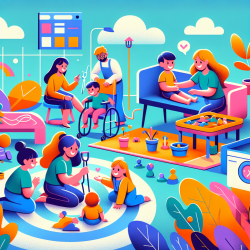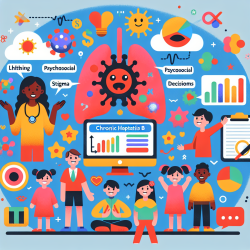As practitioners dedicated to improving the lives of children with cerebral palsy (CP), it is crucial to understand the environmental factors that influence their development and participation. A recent study titled "Characterization of environmental factors in children and adolescents with cerebral palsy in Minas Gerais: Participa Minas" provides valuable insights that can guide our interventions and encourage further research.
Key Findings from the Study
The study, conducted in Minas Gerais, Brazil, involved 164 caregivers of children and adolescents with CP, aged 1-14 years. It highlighted several environmental factors that impact the functioning and participation of these children:
- Access to Health Services: While 91.5% of participants had access to physiotherapy, access to other interventions like psychology (28%) and nutrition (37.8%) was limited.
- Assistive Technology: A significant number of children used lower limb orthoses (71.3%), but access to other assistive technologies was limited, often due to financial constraints.
- School Environment: Schools were the most frequently adapted environment (78%), with 42.7% having structural adaptations. However, 22% of children did not attend school, likely due to environmental barriers.
Implementing the Research Outcomes
Based on these findings, here are some actionable steps practitioners can take to improve therapy outcomes for children with CP:
- Advocate for Comprehensive Multidisciplinary Care: Ensure that children have access to a full range of health services, including physiotherapy, psychology, nutrition, and occupational therapy. Collaborate with other professionals to provide holistic care.
- Promote the Use of Assistive Technologies: Educate caregivers about the benefits of various assistive technologies and advocate for policies that make these technologies more accessible and affordable.
- Enhance School Adaptations: Work with schools to identify and implement necessary structural adaptations. Provide training to educators on how to support children with CP effectively.
Encouraging Further Research
While this study provides valuable insights, there is a need for further research, especially in low- and middle-income countries. Practitioners are encouraged to participate in or initiate studies that explore environmental factors and their impact on children with CP. This will help in developing evidence-based interventions and policies that can significantly improve the quality of life for these children.
To read the original research paper, please follow this link: Characterization of environmental factors in children and adolescents with cerebral palsy in Minas Gerais: Participa Minas.










